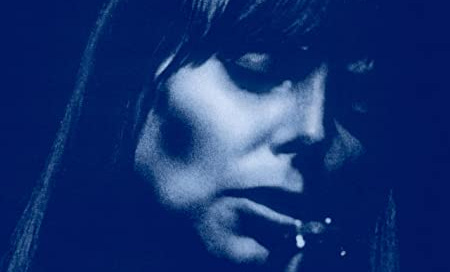The final song on Joni Mitchell’s landmark album Blue, ‘The Last Time I Saw Richard’, is a song that you could describe as tying a ribbon around the album’s themes, thoughts, and moods. Maybe that is too neat; it is a song that leaves a little ambiguity to be a final full stop. It ties together the ideas that Mitchell explores on the album of the ups and downs of love and pivots from an optimistic and pessimistic take on it as often as her guitar changes tuning. Is there a conclusion? We have to look to the final chord on that.
There are not many solo female artists left for me to write about in Phase I of the Run Out Grooves Substack Universe1 but one thing I find when reading about songs that are written by women or sung by women is, when you step back, an obsession with who the subject matter is in a way I don’t see when it is a man who sings or writes the lyrics. That’s not saying there’s no interest, only it doesn’t feel as intense or as often the critical insight to unlocking the song.
Alas, we do need some of the scene-setting, I feel. Blue is one of the, if not the, most devastating break-up albums ever recorded. In early 1970 Mitchell took time out away from the US after her relationship with Graham Nash ended. She spent time in Europe, holed up in a cave in Crete. This break, the holiday, is responsible for the peppy going-to-live-my-life songs like ‘California’ and ‘Carey’. The other break, from Nash, is the inspiration for many of the less upbeat songs.
It is thought by some that ‘The Last Time I Saw Richard’ is about her short marriage with Chuck Mitchell in the mid-1960s. They moved to Michigan in 1965, and Mitchell moved to New York to further her career in music in 1967. Others argue that it isn’t, and Mitchell herself has said that it was another folk singer, Patrick Sky, who told her.
Oh, Joni, you're a hopeless romantic. There's only one way for you to go. Hopeless cynicism.
That nails the discussion that the characters are either having or talking around in this song - it is a reasonably conversational piece with a back and forward between the two characters backed only by a piano. There’s so much rich detail and scene-setting that the song feels like a scene from a play. We have ringside seats for a dissection of the trajectory of Mitchell’s former lover. Of the two characters in the song, I’ll call them Richard and Joni for simplicity, Joni takes the hopeless romantic side, and Richard is the hopeless cynic.
Joni thinks that despite his admission of cynicism, he is a romantic at heart; his song choice from the jukebox shows this. Richard is brittle from heartbreak, and he thinks that she is setting herself to be deceived by lies, sweet or otherwise. As the years and the song goes by, we hear the back and forth as Joni contemplates how her future might play out, much like Robert DeNiro does in GoodFellas as Jimmy Conway with facial expressions deciding the fate of Morrie Kessler.
As the song progresses, she wonders how Richard has allowed himself to be with someone he isn’t head-over-heels for, how superficial their new life together is and whether she is destined to go down the same path herself. She realises that her ideas of perfection are just that and that life can send you in a different direction, far from where you want to be.
From here, we progress, and after trying to convince herself Richard’s new hard-bitten worldview is temporary, she contrasts maintaining her innocent, sweet view of love even if that means being alone in dark cafes to preserve it and not ending up like Richard one day. Eventually, she concludes that not spending time with cynics like Richard is the key to avoiding becoming one.
I’ve only really scratched the surface of this outstanding work, where hope and dread encircle each other. Anger, bitterness, and regret are hard to pick up on a surface reading, but you can read them in the lyrics. Despite the hope of those dark cafe days being a stage in her life, we aren’t convinced when we hear that final, dark and unforgiving chord.
The final chord is so dark and uncertain, and it is one of the great closing chords of an album, up with Sgt Pepper… and Ziggy Stardust, as far as I’m concerned. It turns the lights off and shuts the door on the cafe, the song and the album and leaves nothing more to be said. Blue is an album that looks at doomed love affairs. The final chord says, “What if you are destined to either no love affairs or doomed ones?”
This won’t work now for Joe Rogan related reasons; it might do so in the future.
This is one of two remaining albums in Acclaimed Music’s Top 100 consensus list by a female solo artist - the other being Patti Smith’s Horses.






"one thing I find when reading about songs that are written by women or sung by women is, when you step back, an obsession with who the subject matter is in a way I don’t see when it is a man who sings or writes the lyrics."
Agree! Women are pressured to disclose who the subjects are of their lost love. Joni, Carly, Dolly to name so very few. Sundown by Lightfoot, Hallelujah by Cohen... does the music of men often earn the title of "break-up album"?